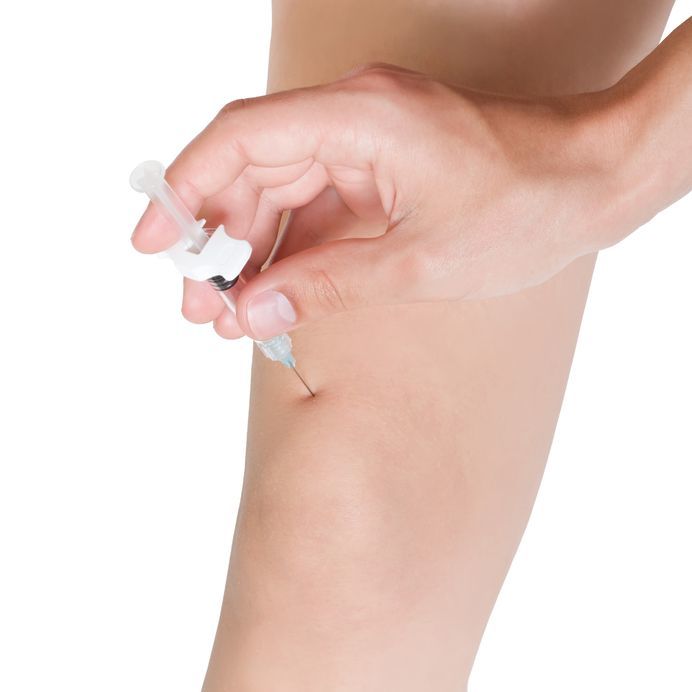
[cmamad id=”3542″ align=”center” tabid=”display-desktop” mobid=”display-desktop” stg=””]
Doctors do things every day that have no evidence that they work.
One of those things is cortisone injections.
If you have a muscle, a joint, or a tendon that’s hurting, the chances are that your doctor will inject it with cortisone.
But is there any evidence that this is a good practice?
What if it actually causes harm to inject a joint with cortisone?
What are the side effects of cortisone injection?
You would be surprised how little study has been done on the subject.
Fortunately, in today’s newsletter, we are going to cover it very well.
After reading this, you will not simply go to the doctor and let him or her inject your joint with cortisone anymore.
So let’s first look at a study done with rabbits.
Injecting cortisone into cartilage in rabbits causes huge problems.
Nobody asked the rabbits how they feel.
[cmamad id=”3543″ align=”center” tabid=”display-desktop” mobid=”display-desktop” stg=””]
But it’s quite obvious what cortisone does to the cartilage after injections.
 Researchers injected these rabbits’ cartilage with cortisone.
Researchers injected these rabbits’ cartilage with cortisone.
Then they examined the rabbits later.
They found that the cortisone dissolved the cartilage tissue.
They called it a biochemical lesion.
cortisol causes a decrease in matrix synthesis.
There is a second study done with athletes.
The researchers examined the effects of injecting the athletes’ joints with cortisone.
They specifically focused on tendons here.
Think about the reasons why cortisone shots are used medically.
Doctors treat pulled tendons, sprained tendons, tendinitis, tennis elbow, and more.
They treat almost any back problem, any knee problem, Achilles tendon problem and so on with these injections.
Think about how common it is to go and get a cortisone injection.
But doesn’t really help?
Or does it hurt healing and does it damage the tendon and cartilage in your joints?
 The findings if this study were shocking.
The findings if this study were shocking.
The tendons that had the injections of cortisone began a process of self-destruction.
And these tendons were much less strong.
Not only does the steroid injection mask the symptoms, but it actually causes a decrease in tensile strength and tendon destruction.
This self-destruction wasn’t seen in the patients who did not receive a cortisone injection.
So a third study was done where some athletes were given cortisone steroid shots, and others were injected with a placebo.
This was one of the ideal studies, a randomized controlled trial.
They focused on the painful condition known as sciatica.
These cortisone injections caused a slight reduction in pain temporarily, BUT…
no sustained benefits in terms of pain, function or need for surgery.
However, it is quite common for people who have high levels of cortisone to experience dramatic tissue breakdown.
Cortisone breaks down tissue.
That’s what it does.
It stands to reason that injecting cortisone into a tendon, muscle, or ligament is going to cause that tissue to break down.
And in one more study,
Cortisone injections caused muscle atrophy:

cortisone both increased protein degradation and decreased protein synthesis.
People go every day to their orthopedist or their general practitioner and are getting a cortisone injection.
They are getting these cortisone shots for pain.
But the reality is that these injections may temporarily help the pain, but they weaken the tendons, ligaments, and muscles.
And these injections probably contribute to a much worse outcome.

http://jbjs.org/content/48/7/1383.abstract
The effect of local steroid injections on tendon
http://ajs.sagepub.com/content/1/4/31.short
A multicentre randomized controlled trial of epidural corticosteroid injections for sciatica: the WEST study
http://rheumatology.oxfordjournals.org/content/44/11/1399.short
Protein Turnover in Skeletal Muscle
II. EFFECTS OF DENERVATION AND CORTISONE ON PROTEIN CATABOLISM IN SKELETAL MUSCLE
http://www.jbc.org/content/244/12/3223.short
